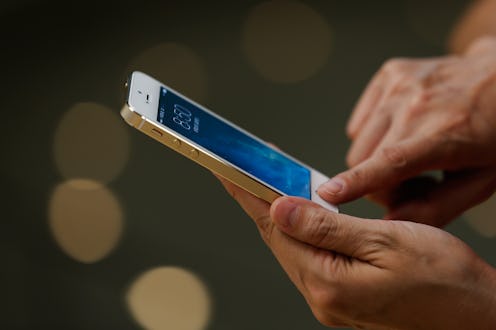Life
This Social Media Site Might Help You Feel Better
Social media has radically altered the ways in which people relate to one another, but could it also change the way people deal with depression? Well, there might soon be a new app called Koko designed to be "Facebook for depression." So what does a social network for depression look like? Well, it might actually be really cool.
Koko was created by Robert Morris, who grew up in Silicon Valley but went on to study psychology. His upcoming app, which is scheduled to launch in the fall, grew out of an experimental social network he developed while getting a PhD at MIT. The platform, called Panopoly, was similar to Facebook, but instead of encouraging people to cherry pick their best moments or put a positive spin on everything, Panopoly asked people to post "What's Wrong?" instead of "What's On Your Mind?" And once people posted about their problems, fellow users were encouraged to help people see the issues in a more hopeful light.
Obviously, depression and other mood disorders are much, much more complicated than just feeling down about bad things in your life; they typically can't be cured just by giving people some positive feedback or a pep talk. But Morris did discover that people suffering from depression and mental stress did feel better after using Panopoly. and the idea got him thinking about ways to expand the project. He ultimately decided on creating a mobile app to help users stay engaged.
Over the past few years, there have been numerous studies that have suggested that social media, particularly Facebook, may be associated with depression and loneliness — which isn't all that surprising, really. People don't tend to like posting things that cast them or their lives in a bad light, meaning scrolling through Facebook becomes an exercise in comparing your life to a bizarre highlight reel of everyone else's. It's enough to make anyone feel bad about themselves sometimes — and to make people who already feel bad feel even worse.
But social media doesn't necessarily have to be that way. Social media spaces are necessarily informed not just by the people who are part of them but by the way in which they are structured. The nature of the platform affects the way in which people use it, the things they share, and thus the culture of a site. And this in turn changes the effect a social media network has on its users. So if a social media network is designed specifically to be a supportive environment, that could actually be really amazing to see.
Morris says he doesn't want to confine the app to just a "depression app," though; he apparently prefers the term "stress-reduction," and says the app could be useful to anyone, even people without diagnosed mental disorders who just happen to be having a bad day. And really, who hasn't ever wished they had access to some encouragement and positive feedback for times when life feels sucky?
In other words, this app can't come quickly enough.
Image: Giphy
